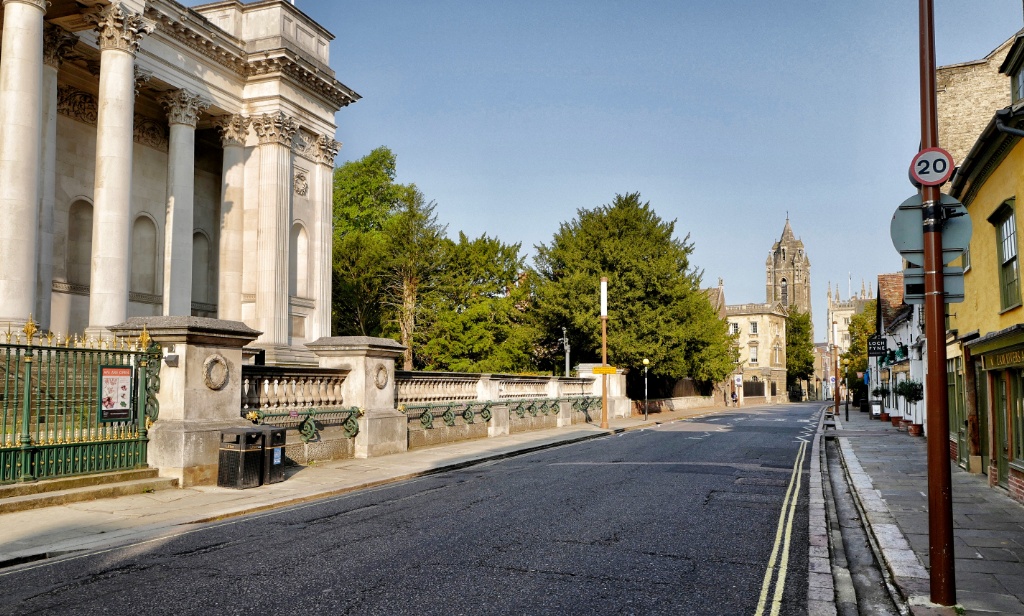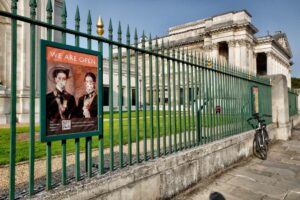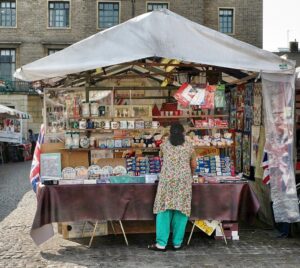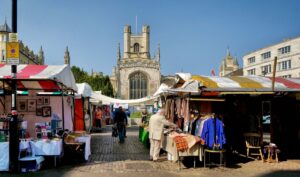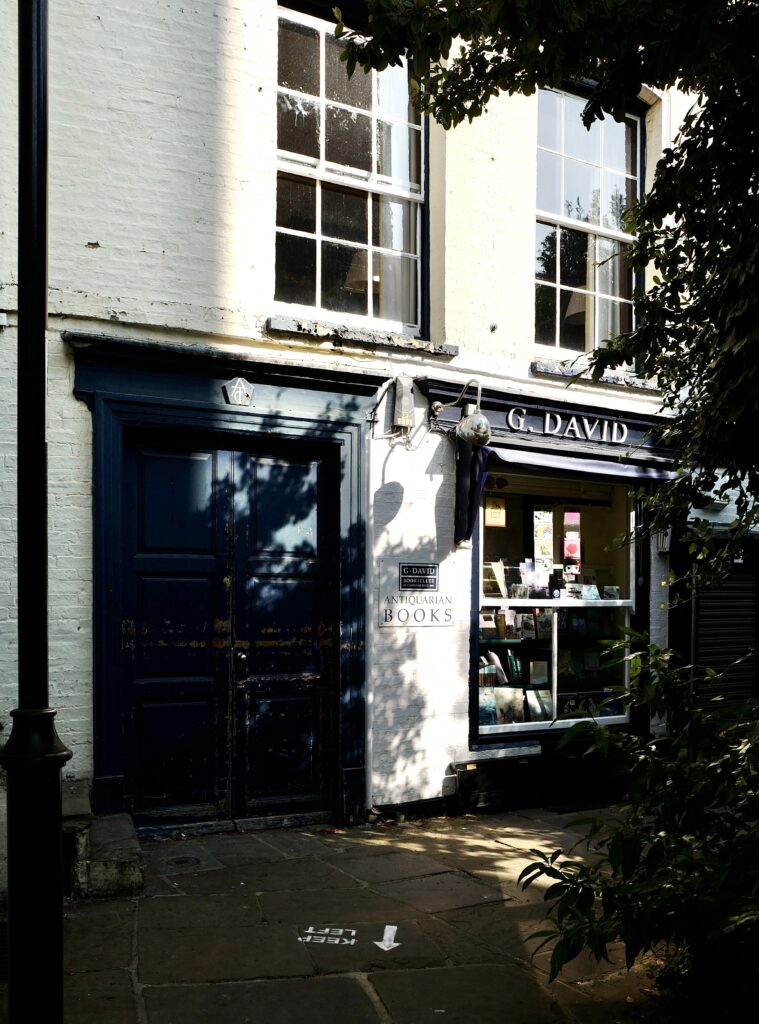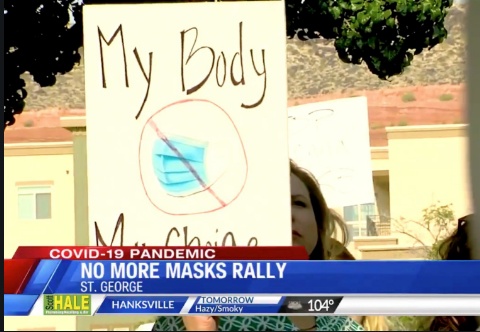Cambridge: morning rush-hour
Trumpington Street, 09:10 this morning.
Quote of the Day
McJob: A low-pay, low-prestige, low-dignity, no-future job in the service sector. Frequently considered a satisfying career choice for people who have never held one”.
- Douglas Coupland, Generation X.
Musical alternative to the morning’s radio news
The Last Thing On My Mind, sung by Tom Paxton and Liam Clancy
That must have been some evening.
Computers for Cynics 0 – The Myth of Technology
If, like me, you’re interested in the history of computing, then Ted Nelson is almost a mythical figure. He’s an American pioneer of information technology, philosopher and sociologist. He coined the terms hypertext (the idea that text doesn’t have to be linear) and hypermedia (ditto for other media) and devoted much of his life to a utopian project called Xanadu — a global hypertext system that would store and display documents, together with giving users the ability to perform edits. On top of this basic idea, Nelson wanted to facilitate nonsequential writing, in which readers could choose their own paths through an electronic document. He outlined some of these ideas in a famous paper to the 1965 ACM national conference, calling the new idea “zippered lists” which would allow compound documents to be formed from pieces of other documents, a concept named Nelson called transclusion.
I first came on Nelson when writing my history of the Internet in the mid 1990s, and saw his work as a continuation of Vannevar Bush’s 1939 idea of ‘associative linking’ (which he published in a 1945 edition of The Atlantic) and as a precursor of Tim Berners-Lee’s World Wide Web. Nelson was always very critical of the Web (and of its inventor) because Tim hadn’t built into it the possibility that a web page could be annotated or rewritten by a user. In other words, it was a one-way hypertext system rather than the multi-way concept of Xanadu. (We had to wait until Ward Cunningham invented the wiki for that to become possible.)
But although Nelson was firmly lodged in the collective unconscious of the Web I’d never actually seen him in action. Which is why coming on this video today was such a delight. He’s just as I imagined him — irrepressible and original to the core.
Some universities are doing admissions right
Universities that brought students back to campus have already seen a rough start to the fall, with more than 50,000 infections across the country. But some have seemingly cracked the code.
The big picture: A number of schools have managed to open up while quelling or even preventing outbreaks, either because they’re effectively testing and tracing or because they’ve got smaller student bodies and more rural locations.
But, on the other hand, see this rant by Scott Galloway, an NYU professor who has been right on a lot of other issues (including tech power). He thinks it’s not only unwise but immoral for American colleges to be re-opening at the present time.
Fasten your seat-belts. Scott doesn’t do nuance.
America’s Plastic Hour Is Upon Us
This is the strange headline over the long read of the day — George Packer’s essay on whether American democracy is capable of revival. The country is at a low point, he says, “but we may be on the cusp of an era of radical reform that repairs our broken democracy”. He’s good on how American politics has degenerated into its current crisis, and very informative on how radical and far-reaching Biden’s policy platform is (much of it was — shamefully — new to me), but at the end I remained as pessimistic about the future of American democracy as I had been when I started reading.
Here’s how he concludes the essay, though:
I began writing this essay in a mood of despair. The mood had grown so familiar, really almost comfortable, that it made me sick of myself and my country. But because I can’t give up on either—suicide is too final, and expatriation is no longer possible—I tried to think about the future and the past. And this is what I’ve come to believe: We have one more chance—in Lincoln’s words, a “last best hope”—to bring our democracy back from the dead. It will be like a complex medical rescue that requires just the right interventions, in just the right sequence, at just the right speed: amputation, transfusion, multiple-organ transplant, stabilization, rehabilitation. Each step will be very hard, and we can’t afford to get any wrong or wait another hour. Yet I’ve written myself into a state of mind that I recognize as hope. We’ve made America before. Self-government still gives us the chance. Everything is in our hands.
Cambridge sans tourists
I lived in the centre of Cambridge from 1968 to 1989 (I now live three miles outside), and one of the things I most liked about the city was how it was in the month of September. The town was always crammed with tourists between Easter and the end of August, but once September arrived the tourists disappeared and the local inhabitants used to emerge from their hideouts and reclaim their town. So suddenly you’d run into people you hadn’t seen since before the Summer, rediscover cafes and delicatessens that were no-go-areas during the tourist season, and so on.
But then that all began to change in the 1990s — largely, I think, because of the increasing prosperity of China. So Chinese and other oriental tourists seemed to come almost the whole year round and there were times when the town reminded one of Venice. It got so bad, for example, that I stopped cycling up King’s Parade because of the risk of hitting oblivious, selfie-stick-wielding tourists trying to get a portrait with King’s chapel as a backdrop.
And now? There are no tourists. And precious few locals either: they’re mostly still cowering in their Covid-resistant bunkers. But this morning was beautifully sunny so we cycled in early and I parked my bike in the centre and went walkabout with a Leica, taking pictures and drinking in the place. I had breakfast in the open air from a stall in the half-deserted market (looks as though many stallholders have had to give up during the tourist-famine), and sat listening to the conversation of the chaps from local building sites as they gathered for their elevenses. It was absolutely heavenly. Just like it used to be in the 1970s and 1980s.
Here are a few of the pictures (as well as the ‘rush-hour’ one at the top. (A click on each should give you a larger image.)
The Fitzwilliam Museum is defiantly open!
At least one stallholder is hoping that someone will want ‘souvenirs’ of their visit to Cambridge.
Great St Mary’s still looms over the largely deserted market.
And on the pavement outside the door of the apartment that Maynard Keynes used after his marriage the council has stencilled “Keep Left” in white paint!
Cognitive dissonance rules OK?
Given the slogan, I wonder how many of the mask-refusniks also believe that it’s a woman’s right to choose?
This blog is also available as a daily email. If you think this might suit you better, why not subscribe? One email a day, delivered to your inbox at 7am UK time. It’s free, and there’s a one-click unsubscribe if your decide that your inbox is full enough already!

